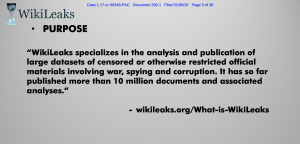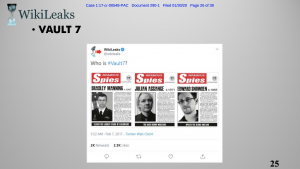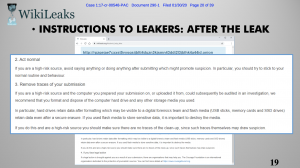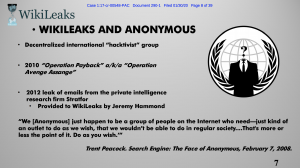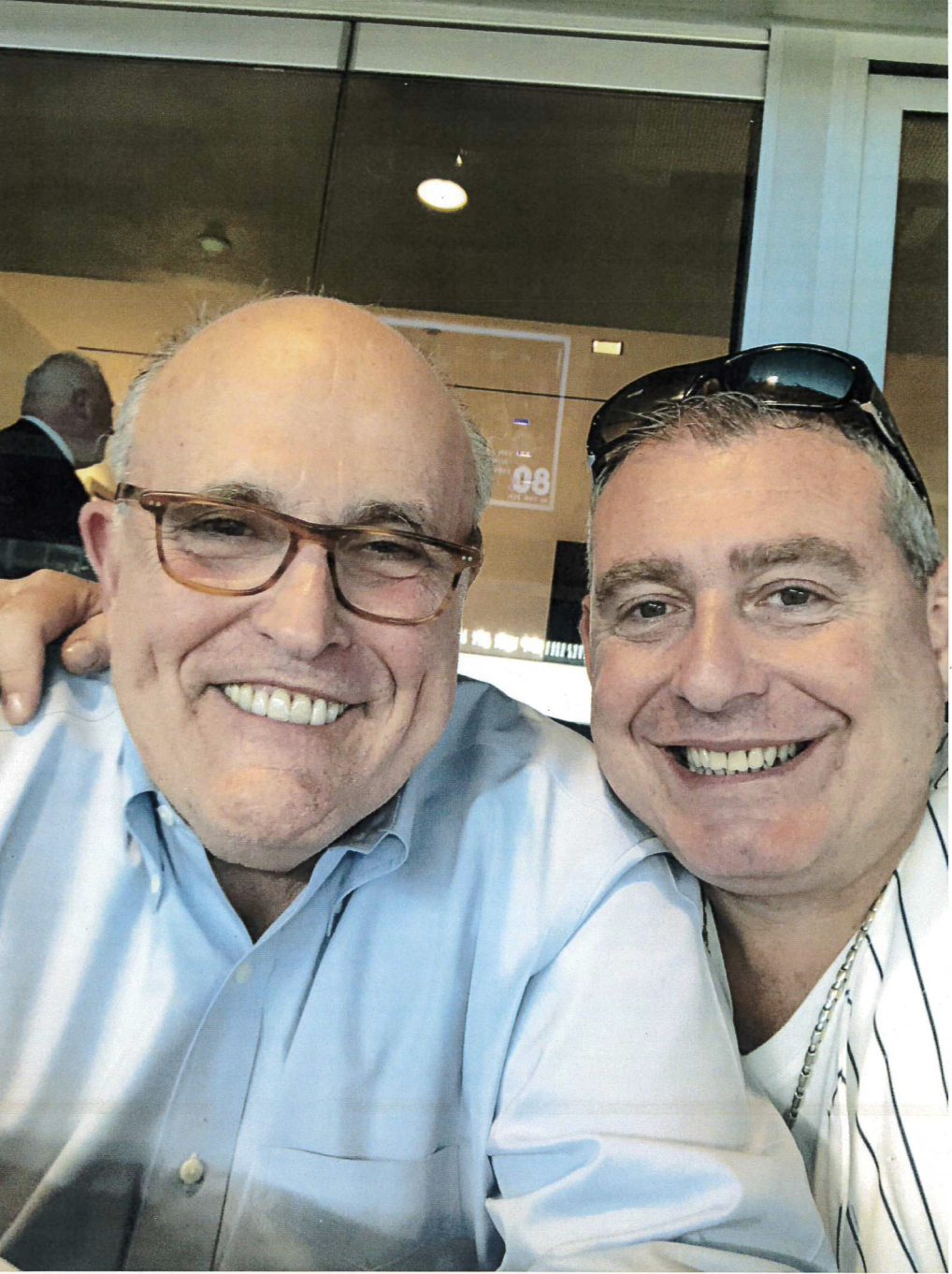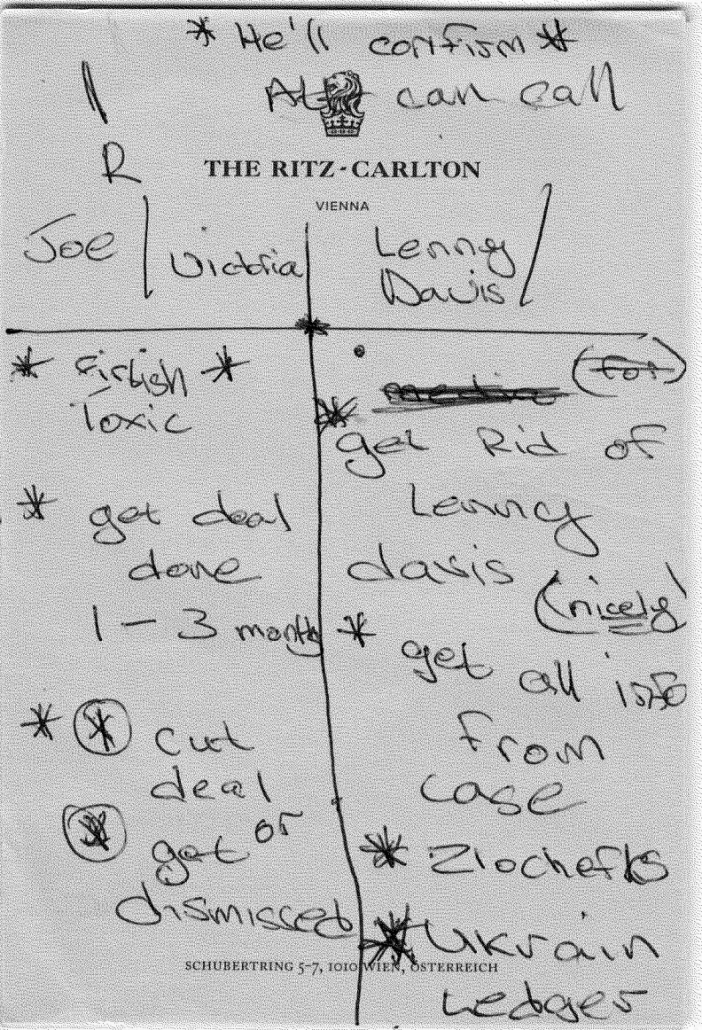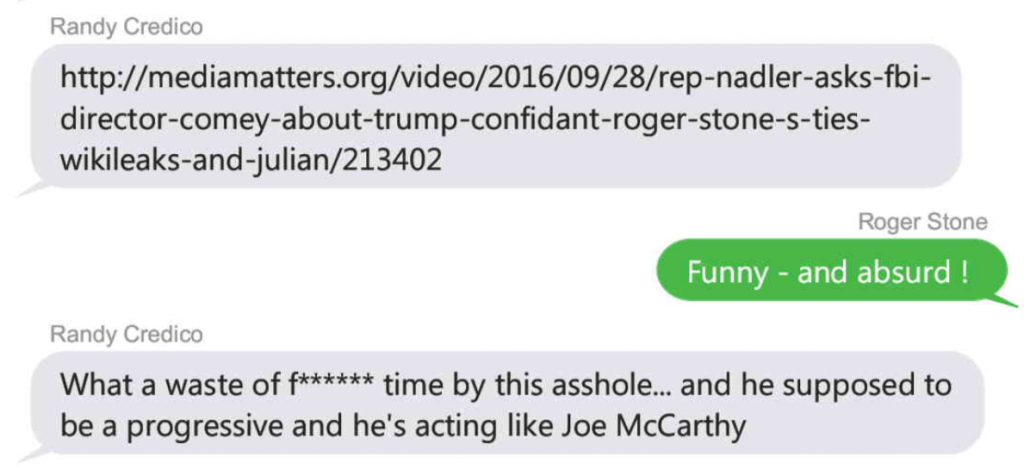As I noted some weeks ago, there was a detail revealed in the Roger Stone trial that cast Donald Trump’s answers to Robert Mueller in significant new light. It wasn’t the evidence that Trump lied when he said he could not recall talking to his rat-fucker about WikiLeaks; there was already far more compelling evidence that Trump lied under oath to Mueller. Rather, it was the evidence that Trump may have lied when he said he didn’t recall discussing pardoning Julian Assange.
The trial revealed discussions on a pardon involving Stone were more extensive than previously known. Even before the election, Randy Credico interspersed his responses to Stone’s demands for information about Assange’s plans with a push for Trump to give Assange asylum.

It was previously known that Credico and Stone continued to discuss their shared support for an Assange pardon into 2018. The new information on this topic revealed at trial was that Credico introduced Margaret Kunstler to Stone in late December 2016 in pursuit of a pardon.
Given how that makes any pardon for Assange look much more like payoff for help getting elected, I wanted to pull together evidence about how Trump and others responded to the Vault 7 leak in early 2017 and afterwards. What follows is speculative. But the significance of it is bolstered by the fact that Trump’s favorite propagandist, John Solomon, has a role.
Back in early January 2017, the lawyer that Assange shared with Oleg Deripaska and Christopher Steele, Adam Waldman, reached out to DOJ organized crime official Bruce Ohr to broker information from Assange about the CIA hacking files he was preparing to release; Assange never committed to holding the release, but he did offer to make redactions. Waldman met in person with Ohr on February 3. That same day, Waldman reached out to David Laufman, the head of counterintelligence at the time, presumably off a referral from Ohr. The next day, Assange first pitched Vault 7, effectively giving Waldman more leverage to make a deal with DOJ.
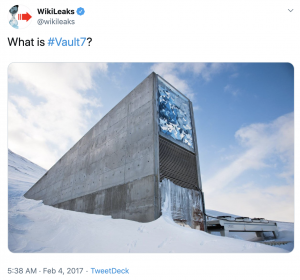
At the same time, Waldman started reaching out to Mark Warner, ultimately discussing possible testimony to SSCI with all his clients — Steele, Deripaska, and Assange. In his discussions about Assange with Warner on February 16, Waldman claimed he was trying to protect Democrats, as if a damaging leak would hurt just one or the other party.
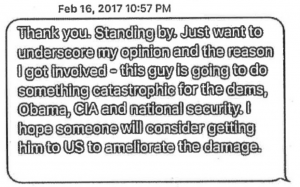
Just two days later, however, Warner broke off that part of discussions with Waldman on instructions from Jim Comey. Ultimately, the frothy right would slam Comey for making this call, complaining that he disrupted, “constructive, principled discussions with DOJ that occurred over nearly two months.” By the time of Comey’s call, however, CIA was already conducting their own internal investigation and had a pretty good idea that Joshua Schulte had leaked the documents.
On March 7, WikiLeaks released the first of a long series of dumps pertaining to CIA’s hacking tools. While WikiLeaks claimed to have redacted damaging information, within days the FBI and CIA identified that WikiLeaks had actually left damaging information that would have required inside information to know to leave in the files (that is, communications with the source, possibly directly with Schulte).
On March 9, Donald Trump called Jim Comey — the single communication he had with Comey that (at least on the surface) did not relate to the Russian investigation — to ask about ” our, an ongoing intelligence investigation,” per later Comey testimony.
On March 9, 2017, Comey had a secure one-on-one telephone call with President Trump. Comey told the OIG that the secure telephone call was “only business,” and that there was “nothing untoward” about the call, other than it was “unusual for the President to call the Director directly.” Comey said he did not prepare a memo to document this call with the President, but said he had [Jim] Rybicki arrange a secure call to Attorney General Sessions immediately afterwards to inform the Attorney General about the telephone call from the President in an effort “to keep the Attorney General in the chain of command between [Comey] and the President.”
I haven’t confirmed that this pertained to Schulte, though the timing suggests it’s a high likelihood.
Even after the first release, David Laufman made some kind of counteroffer to Waldman in mid-March (these files come from Solomon, so can be assumed to be missing key parts).
But then, days later, the FBI obtained the first warrants targeting Joshua Schulte, obtaining a covert search warrant and a warrant for his Google account on March 13. When the FBI arrived at Schulte’s apartment to search it, however, they discovered so many devices they decided they could not conduct the search covertly (they were under a time crunch, because Schulte had a plane ticket for Mexico on March 16). So overnight on March 14, they obtained an overt search warrant.
Mid-day on what appears to be the same day FBI prepared to search Schulte’s apartment, Tucker Carlson accompanied Trump on a trip to Detroit. During the interview, Tucker challenges Trump, asking why he claimed — 11 days earlier — that Obama had “tapped” Trump Tower without offering proof, Trump blurted out that the CIA was hacked during the Obama Administration.
Tucker: On March 4, 6:35 in the morning, you’re down in Florida, and you tweet, the former Administration wiretapped me, surveilled me, at Trump Tower during the last election. Um, how did you find out? You said, I just found out. How did you learn that?
Trump: I’ve been reading about things. I read in, I think it was January 20th, a NYT article, they were talking about wiretapping. There was an article, I think they used that exact term. I read other things. I watched your friend Bret Baier, the day previous, where he was talking about certain very complex sets of things happening, and wiretapping. I said, wait a minute, there’s a lot of wiretapping being talked about. I’ve been seeing a lot of things. Now, for the most part I’m not going to discuss it because we have it before the committee, and we will be submitting things before the committee very soon, that hasn’t been submitted as of yet. But it’s potentially a very serious situation.
Tucker: So 51,000 people retweeted that, so a lot of people thought that was plausible, they believe you, you’re the president. You’re in charge of the agencies, every intelligence agency reports to you. Why not immediately go to them and gather evidence to support that?
Trump: Because I don’t want to do anything that’s going to violate any strength of an agency. You know we have enough problems. And by the way, with the CIA, I just want people to know, the CIA was hacked and a lot of things taken. That was during the Obama years. That was not during, us, that was during the Obama situation. Mike Pompeo is there now, doing a fantastic job. But we will be submitting certain things, and I will be perhaps speaking about this next week. But it’s right now before the Committee, and I think I want to leave it at that. I have a lot of confidence in the committee.
The search on Schulte did not end until hours after this interview was broadcast. After it was broadcast, but before FBI had confiscated Schulte’s passport, he had gone to his office at Bloomberg to access his computer there. That means, Trump provided non-public information that — because it would have made it clear to Schulte that FBI knew the hacking tools had been stolen under Obama — might have confirmed Schulte’s suspicions that he was the target.
WikiLeaks released a second dump two weeks after the first, on March 23. Then Waldman made a proffer on March 28, offering to discuss Russian infiltration of WikiLeaks and ways to mitigate the damage from Vault 7 for safe passage to the US (and possibly immunity, though that may have been only for that discussion). Laufman couldn’t make sense of the demand for “safe passage,” and asked for clarity, which he appears never to have gotten.
Then on April 7, with the third dump and Mike Pompeo’s subsequent naming of Vault 7 as a hostile non-state actor, the negotiations with Laufman may have ceased. Thus ended what appears to be Assange’s efforts to leverage the CIA’s hacking tools and a false show of reasonableness to obtain a way out of the embassy.
To be fair, Trump didn’t successfully undermine the entire Schulte investigation; he was probably just blabbing his mouth. Unsurprisingly, DOJ refused to grant the expansive concessions Assange was demanding.
But there are a few details of these events of particular interest.
First, Trump’s public comments seem to perfectly parrot what Waldman was saying back in February. Both asserted, ridiculously, that Democrats were uniquely to blame for the theft of CIA’s hacking tools and Trump used that fact almost gleefully, to absolve himself of any concern about the leak.
Similarly, because Jim Comey intervened (presumably to preserve the integrity of at least the investigation into Vault 7 but possibly more), someone teed up John Solomon to blame Comey for the leak the week after Schulte was eventually charged for it. Specifically, Solomon “blames” Comey for not agreeing to free Assange temporarily back in early 2017.
Some of the characters are household names, thanks to the Russia scandal: James Comey, fired FBI director. Sen. Mark Warner (D-Va.), vice chairman of the Senate Intelligence Committee. Department of Justice (DOJ) official Bruce Ohr. Julian Assange, grand master of WikiLeaks. And American attorney Adam Waldman, who has a Forrest Gump-like penchant for showing up in major cases of intrigue.
Each played a role in the early days of the Trump administration to try to get Assange to agree to “risk mitigation” — essentially, limiting some classified CIA information he might release in the future.
The effort resulted in the drafting of a limited immunity deal that might have temporarily freed the WikiLeaks founder from a London embassy where he has been exiled for years, according to interviews and a trove of internal DOJ documents turned over to Senate investigators.
But an unexpected intervention by Comey — relayed through Warner — soured the negotiations, multiple sources tell me. Assange eventually unleashed a series of leaks that U.S. officials say damaged their cyber warfare capabilities for a long time to come.
John Solomon has been the go-to defense propagandist for Trump from the start. This article is an outlier for its topic. Nevertheless, someone loaded Solomon up with documents to selectively release to fit a particular narrative, which attests to the perceived import of it.
Again, some of this is speculative. But tied to the fact that pardon discussions with Trump may have gone further than previously known, it provides a curious pattern, where Trump responded to the most damaging breach in CIA’s history by instead looking for partisan advantage.
Update: According to a Jim Comey 302 newly liberated by BuzzFeed, he diverted into ODNI to call Trump regarding the March 9 call. (PDF 248)

Note that nothing was withheld for classification reasons, though the call was clearly Top Secret when it occurred. That limits the possible topic still further (though by no means confirms that it is Schulte).
Timeline (all dates 2017)
January 12: Bruce Ohr considers Waldman’s offer
February 3: Laufman reaches out to Waldman
February 4: Wikileaks first pitches Vault 7
February 6: Steele tells Ohr that Oleg Deripaska is upset at being treated like a criminal
February 14: Steele probably shares more information on his relationship with Deripaska
February 15: Waldman reaches out to Warner
February 16: Waldman issues extortion threat against Democrats
February 17: Warner says he’s got important call (with Comey), relays stand down order
March 7: Wikileaks releases first Vault 7 documents
March 9: Trump asks Jim Comey about an intelligence investigation
March 13: Covert search warrant on Schulte’s home and Google account
March 14: FBI obtains overt search warrant for Schulte’s home
Mid-March: Waldman contacts Laufman, suggests Assange is interested
March 15, mid-day: During Tucker Carlson interview, Trump reveals non-public information about Vault 7 leak
March 15: FBI interviews Schulte several times as part of first interview
March 15, 9PM: Probable first airing of Carlson interview
March 16: Adam Schiff warns against Trump leaking about Vault 7
March 20, 2017: Search on Schulte (including of cell phone, from which passwords to his desktop obtained)
March 23: Second Vault 7 release
March 28: Safe passage offer not including details about hack
March 31: Third Vault 7 release
April 5: Laufman asks whether Assange wants safe passage into London or to the US
April 7: Wikileaks posts third dump, which Solomon suggests was the precipitating leak for Mike Pompeo’s declaration of Wikileaks as non-state intelligence service (these are weekly dumps by this point)




